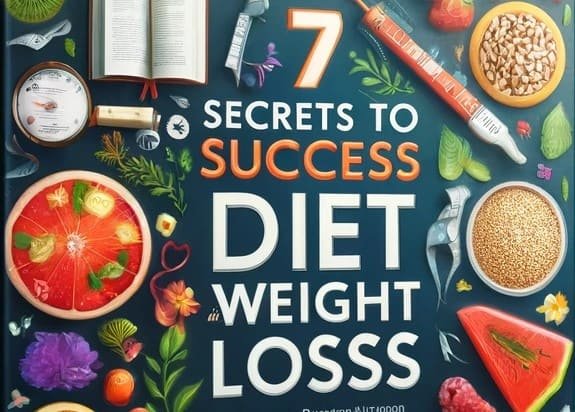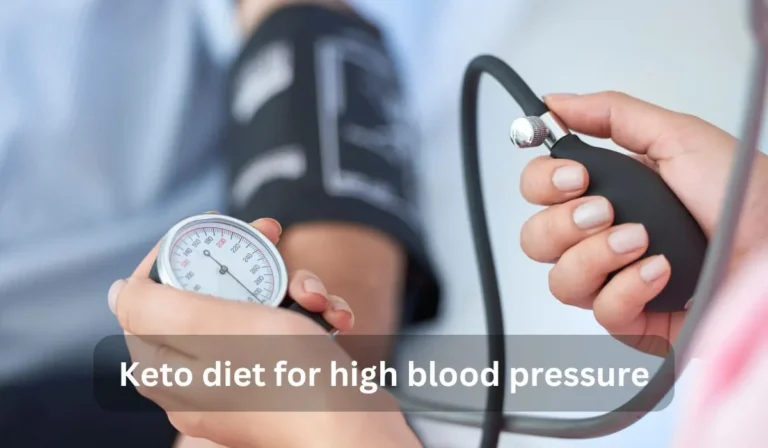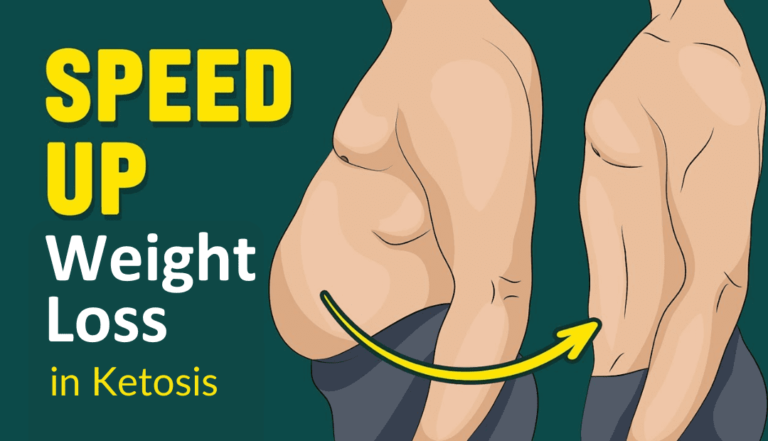Effective Diet and Weight Loss Strategies: See Results in Weeks
Ever wondered what the key to happiness is? It’s living a healthy life and enjoying good food! Every year, people spend over $70 billion on Diet and Weight Loss programs and supplements. In 2015-2016, around 93.3 million U.S. adults were obese, making up nearly 40% of the population, according to the CDC.
Here are two essential tips for successful weight loss: First, choose a plan that fits your lifestyle and makes you happy. Second, be patient—sustainable weight loss is a gradual process.
Before starting your weight loss journey, determine a healthy weight goal. Set small, manageable goals and gradually adjust your daily habits. Be flexible and ready to tweak your lifestyle to boost your chances of success.
In this guide, we’ll reveal seven unique secrets to success in Diet and Weight Loss.
What’s The Healthiest Diet?
There’s no one-size-fits-all answer to Choosing the healthiest diet. However, several popular diets share features that are great for your health. Here’s a short-cut look at some top diets:
1. Mediterranean Diet
The Mediterranean Diet emphasizes fruits, vegetables, nuts, whole grains, and olive oil. It also includes-
- dairy,
- fish, poultry, and
- limits red meat and sugar.
This diet is good for your heart and can help lower your risk of diseases.
2. DASH Diet
Designed to lower blood pressure. This diet enables you to eat-
- vegetables,
- fruits,
- whole grains,
- lean protein and
- cut down on fat, red meat, and sugar.
3. MIND Diet
A mix of Mediterranean and DASH diets. It focuses on foods that are good for brain health. For example-
- green leafy vegetables,
- berries should be limited,
- while dairy and fruit should be limited.
4. Nordic Diet
Based on foods typical in Scandinavia. This diet includes-
- many fish,
- whole grains, and
- vegetables like cabbage.
5. Keto Diet
A satiating effect with decreased food cravings due to the high fat content of the diet. A decrease in appetite-stimulating hormones, such as insulin and ghrelin, when eating restricted amounts of carbohydrates. A direct hunger-reducing role of ketone bodies—the body’s main fuel source on the diet.
- Fish and seafood
- Meat and poultry
- Non-starchy vegetables
It’s good for weight loss and preventing heart problems.
What’s a High-fat Weight Loss Diet?
The ketogenic or ‘Keto’ diet is a high-fat weight loss strategy where 75%-90% of your calorie intake comes from fats, with minimal carbs (5%) and moderate protein (10-20%).
This diet shifts your body into ketosis, burning fat for energy instead of carbs. That can rapidly eliminate weight and stabilize blood sugar levels.
However, the Keto diet is challenging. To maintain long-term and maintained effectiveness, it lacks comprehensive study. So, always consult a healthcare professional before starting any new diet and weight loss plan.
What’s The Best Diet for Weight Loss?
The best diet for weight loss isn’t just about short-term changes. It’s about continuing healthy eating habits. Instead of temporary “fad diets,” sustainable weight loss involves a permanent shift to more nutritious choices. A balanced diet rich in natural, unprocessed foods and low in sugar and salt is key—for example- fish and olive oil.
Healthy Meal Ideas:
- Breakfast: Bran flakes with strawberries, walnuts, and nonfat milk.
- Lunch: Turkey sandwich on whole wheat with veggies and olive oil-vinegar dressing.
- Dinner: Salmon steak with spinach.
To maintain energy and curb hunger, include healthy snacks like-
- Almonds,
- Greek yogurt, or
- A banana with peanut butter.
The most effective tip for Diet and Weight Loss is to maintain always. So choose foods you enjoy and are likely to keep eating.
Learn: Best Keto Diet Plan For Beginners
7 Secrets to Success in Diet and Weight Loss
1. Keep a food and weight diary:
Use apps or a simple notebook to record every meal, snack, drink, and daily weight measurement.
This real-time data helps spot trends, manage portions, and maintain discipline.
It is crucial for informed dietary choices and consistent weight loss. People can also track their body mass index (BMI) using a BMI calculator.
2. Eat fresh, colorful, nutritionally dense foods:
A balanced plate should consist of-
- 50% fruits and vegetables,
- 25% whole grains, and
- 25% protein sources.
This mix covers your daily nutritional needs.
Aim for 25–30 grams of fibre daily. To promote digestive health and enhance satiety. It’s crucial for weight management.
Fats in Your Diet
Altogether, avoid trans fats from your diet as they are linked to an increased risk of coronary heart disease. Reduce intake of saturated fats by avoiding butter, fatty meat, and other high-fat dairy products. Include sources of monounsaturated and polyunsaturated fatty acids, such as fish, nuts, and seeds, which contribute to heart health and overall well-being.
Foods to Add:
- Fresh fruits and vegetables
- Fish rich in omega-3 fatty acids
- Legumes
- Nuts and seeds
- Whole grains (e.g., brown rice, oatmeal)
Foods to Avoid:
- Avoid foods with added oils, butter, and sugar.
- Stay away from fatty red meats and processed meats.
- Limit consumption of high-calorie baked goods, bagels, and white bread.
3. Regular physical activity and exercise
Regular exercise is essential for both your body and mind. It helps with weight loss and health. So, aim for at least 1 hour of moderate daily activities like brisk walking. Or at least 150 minutes per week if daily exercise isn’t possible.
If you’re new to exercise, start slow and gradually increase your exercise intensity. This also will help make exercise a regular part of your life. Tracking your activities and meals using free apps can also motivate you.
If starting a full workout seems challenging, try more straightforward activities like:
- Taking the stairs
- Raking leaves
- Walking a dog
- Gardening
- Dancing
- Playing outdoor games
- Parking farther from entrances
While some people should check with a doctor before starting new exercises, others can generally begin without medical advice.
4. Seek social support
Welcoming the support of loved ones is a vital part of a successful diet and weight loss journey.
Many people may want to request friends or family members to join them, while others might like to use social media to share their progress.
Other supports may include:
- a favorable social network
- group or individual counseling
- exercise clubs or members
- employee-assistance programs at work
5. Eliminate liquid calories
Drinking sugary drinks like soda, tea, juice, or alcohol can add 100 calories to your diet every day. These are called “empty calories” because they give you energy but no nutritional benefits.
It’s best to drink water or tea and coffee instead of these sugary drinks. To add flavor, you can add fresh lemon or orange to your water.
Also, sometimes people think they are hungry when they are just thirsty. Drinking a glass of water can often stop hunger feelings between meals.
6. Prioritize Sleep in Diet and Weight Loss:
Maximizing sleep is essential to losing weight. Proper sleep balances hormones, controls appetite and prevents overeating. It also boosts metabolism for increased calorie burn and elevates energy levels to encourage more physical activity.
For good sleep, keep a consistent sleep schedule. Also, ensure your bedroom is quiet, dark, and between 60 and 67°F.
Therefore, relax with activities like reading or meditation before bed. Thus, avoid heavy meals or caffeine close to bedtime. Prioritize good sleep to enhance your weight loss efforts efficiently!
7. Stay positive
Weight loss is a gradual journey with its challenges. It’s essential to maintain motivation and adapt your strategy when progress slows. So, here are some practical tips:
- Accept that weight loss is not linear, and some days will be more challenging.
- Continue pushing forward, even when it feels tough. Perseverance is crucial for success.
- If you want success, rethink your calorie intake or modify your exercise plan.
- Always keep a positive outlook to help navigate obstacles.
Learn: How To Speed Up Weight Loss In Ketosis
Conclusion:
In summary, improve your health and manage your diet and weight easily. Eat nutritious foods, reduce unhealthy fats and processed items, and seek expert advice. Follow the simple steps for better health and wellness.
FAQS About Diet and Weight Loss
How can I lose weight effectively and sustainably?
Effective and sustainable weight loss involves a combination of healthy eating, regular physical activity, and lifestyle changes. Focus on a balanced diet rich in fruits, vegetables, whole grains, and lean proteins while reducing your intake of processed foods and sugary beverages. Regular exercise, such as 30 minutes of moderate-intensity activity most days of the week, is also crucial (Mayo Clinic) (Mayo Clinic Diet).
Is it possible to lose weight without counting calories?
Yes, it’s possible to lose weight without counting calories by focusing on eating nutritious, low-calorie-dense foods like vegetables, fruits, and whole grains. The key is to make healthier food choices, control portion sizes, and increase physical activity. Many diet plans, such as the Mediterranean diet, emphasize healthy eating patterns over calorie counting (Mayo Clinic) (Noom).
Can exercise alone help me lose weight?
While exercise is important for overall health and can aid in weight loss, it is most effective when combined with a healthy diet. Simply exercising without making dietary changes might not lead to significant weight loss. Combining both elements increases the chances of achieving and maintaining your weight loss goals (Mayo Clinic) (dotFIT).
Is it necessary to follow a specific diet to lose weight?
No, it is not necessary to follow a specific diet to lose weight. The best diet is one that fits your lifestyle and is sustainable long-term. Whether you choose a specific diet plan like the Mediterranean diet, a low-carb diet, or simply focus on eating balanced meals, the key is to maintain a calorie deficit, eat a variety of nutrient-rich foods, and avoid overly restrictive eating patterns
How much weight can I expect to lose in the first few weeks of a new diet plan?
Weight loss results can vary, but many people can expect to lose about 6-10 pounds in the first two weeks of a structured diet plan like the Mayo Clinic Diet. After the initial phase, a typical weight loss rate is 1-2 pounds per week, which is considered healthy and sustainable








